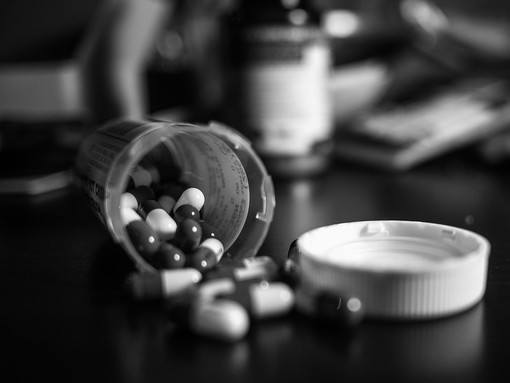
Photograph Source: Ajay Suresh – CC BY 2.0
Pharma is one of the public’s most detested industries. But despite its low approval ratings and a plethora of government lawsuits, Pharma continues to thrive. Here are some of the tricks up its sleeve that enable its continued profiteering.
1. Astroturf Patients
Pharma promotes fake patient advocacy groups to lobby for its interests. These front groups often push the FDA to approve an expensive drug that has acceptable, cheaper alternatives. Or, they’ll try to prevent Medicaid from switching to the less pricey drug. One of the largest faux groups, National Alliance on Mental Illness (NAMI), was investigated by Sen. Charles Grassley for undisclosed Pharma links. He found that three fourths of the group’s donation came from Pharma.
2. Cheating the Government
Pharma is a top defrauder of the federal government. “Desperate to maintain their high margin of profit in the face of a dwindling number of important new drugs,” Pharma illegally promotes unapproved uses of drugs and deliberately overcharges Medicare and Medicaid, said Dr. Sidney Wolfe, former director of Public Citizen’s Health Research Group. Nor are government sanctions effective. Even as Pfizer was under a 5-year Corporate Integrity Agreement (CIA) with HHS for withholding $20 million in Lipitor rebates owed to Medicaid in 2002, it was marketing Neurontin for off-label indications which earned it a second CIA in 2004. And even as it entered into the second CIA, it was marketing Lyrica and other meds for off-label indications which earned it a third CIA.
3. Overseas Adventurism
As Pharma increasingly eyes poorer countries for new markets and cheaper manufacturing it also eyes them for cheaper clinical trials. In 1996, 11 Nigerian children died in trials testing Pfizer’s not-yet-approved antibiotic Trovan. While Pfizer paid the Nigerian government and state of Kano millions in a settlement, documents released by Wikileaks show that Pfizer tried to extort Nigeria’s former attorney general to drop the lawsuits. Trovan was withdrawn from U.S. markets in 2001 for liver toxicity, though “safety signals” may have appeared sooner.
4. Duping Institutional Review Boards
Institutional review boards or IRBs are supposed to oversee clinical trials to catch unsafe drugs and injuries to subjects. Sadly, they are increasingly for-profit and “for sale” as they are increasingly paid by those who hire them. Consider this sting conducted on a Colorado review board by Congress and the General Accountability Office. When asked to oversee a study of the fictitious Adhesiabloc, a product designed to reduce scar tissue after surgery, Coast Independent Review Board agreed to oversee the study though neither the Adhesiabloc, its alleged developer or the lead researcher even existed. And people wonder how dangerous drugs and devices get to market.
5. FDA Foreplay
A sneaky way Pharma tries to get the FDA to smile on a drug’s approval is to float the drug directly to the public so it can demonstrate “demand” to the FDA. Boehringer-Ingelheim tried the tactic in selling flibanserin, a medication for “hypoactive sexual desire disorder” (HSDD) using TV personality Lisa Rinna in a campaign called “Sex Brain Body: Make the Connection.” The drug was eventually sold to Sprout Pharmaceuticals but despite the hype, there are few takers. An analysis of the drug’s clinical trial data wrote Forbes “claims that the drug resulted in only one added sexually satisfying encounter every two months, less than originally thought.”
6. Pharma Service Announcements
Public service announcements are supposed to be messages for the public good, like, “Do You Know the Seven Warning Signs of Cancer?” But most awareness messages these days are not from the government but Pharma. For example, a campaign a few years ago called “Voices of Meningitis” looked like it was raising awareness of meningitis, but was actually funded by meningitis vaccine maker Sanofi Pasteur. “Get Tested for Hep C” ads likely have the CDC Foundation logo on them and appear as government messages because Gilead contributes to the CDC Foundation. You can tell when Pharma is selling a disease to sell a drug because it give the disease snappy initials like restless legs syndrome (RLS), excessive sleepiness (ES), rheumatoid arthritis (RA) and TD (tardive dyskinesia).
7. Bought Books
Pharma is often accurately accused of ghostwriting medical journal articles that appear under doctors’ names though the docs who had nothing to do with the writing or research. But books are also funded by Pharma. A 1999 textbook written to help primary care doctors diagnose psychiatric conditions was funded entirely by GlaxoSmithKline (GSK)- which makes pills for –– any guesses? –– psychiatric conditions. Its authors were two prominent psychiatrists one of whom was on GSK’s speakers bureau and the other, investigated by Congress for undeclared GSK income.